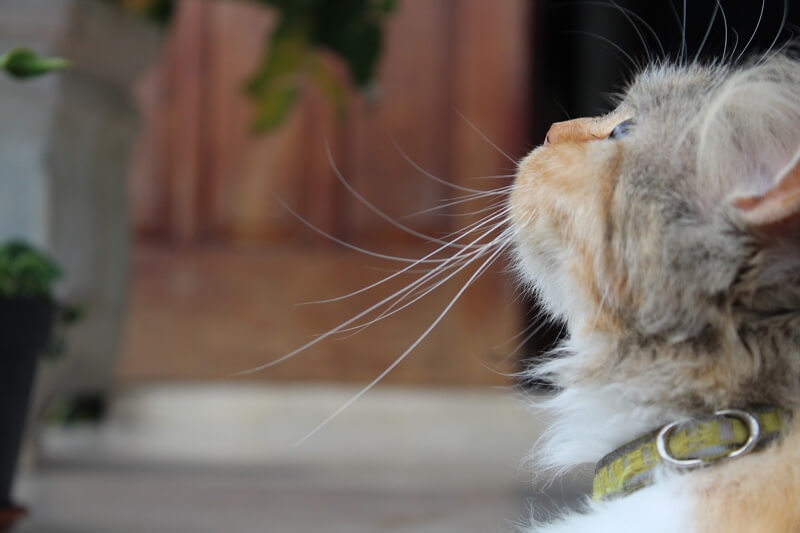Upper Respiratory Infection in Cats
Did you know that cats can get colds just like humans? Learn more about feline cold symptoms, treatment options, and prevention tips.
If your lovable feline experienced an asthma attack, you’d most likely be worried sick. But you wouldn’t be alone. Cat asthma is the most commonly diagnosed feline respiratory disorder, affecting approximately 800,000 of our country’s kitties. Luckily, it can be easily managed once you understand the disease and can work with your veterinarian on a treatment plan.
Similar to human asthma, cat asthma refers to the inflammation and constriction of the breathing passages. It can be sudden (acute) or long-term (chronic), and it can be classified as:
Cat asthma affects males and females equally and can occur in kitties of all ages – although most are diagnosed between 2 and 8 years of age. Some studies indicate that Siamese and Himalayans are more likely to develop asthma, but that hasn’t been proven.
Cat asthma typically develops when an allergic reaction to an inhaled allergen causes a kitty’s immune system to overreact. Common culprits include:
Certain factors can also trigger or worsen an attack, including parasites, heart conditions, obesity, and stress.
If your pal has an asthma attack, you may notice them crouching very low to the ground and extending their neck, in addition to experiencing the symptoms listed in the next section. But what’s going on inside your feline friend?
During at attack, your cat’s immune system releases stimulants that cause the narrow tubes (bronchi) that run from the trachea to the lungs to constrict. These stimulants can also cause the surrounding muscles to contract, the bronchial lining to swell and become inflamed, and the airways to fill with mucus.

Most cat asthma symptoms can also be linked with other feline disorders, such as heartworm, pneumonia, parasites, tumors, and heart failure. However, an asthma attack can become life threatening in a very short amount of time, so it’s a good idea to contact your veterinarian right away if you observe:
Remember, if you see your kitty hunched close to the ground and extending their neck, they may be struggling to open their airways, and you may need to seek immediate care.
There is no specific test to diagnose cat asthma, so your veterinarian will likely start by gathering a complete medical history, as well as information regarding your li’l buddy’s diet and routine. Even small changes you make in your home – such as new furniture or a seasonal air freshener – can trigger attacks.
Next, your veterinarian will give your kitty a complete physical exam, using a stethoscope to listen to wheezing sounds and check for heart abnormalities. Finally, your kitty may undergo a variety of diagnostic tests to rule out other conditions. Tests may include:

Cat asthma has no cure, but you and your veterinarian can work together to manage the disease and help give your special fur baby a longer and more comfortable life. Your cat’s treatment plan will depend on the severity of their condition.
There are different medications that can help reduce inflammation, open your kitty’s airways, and modify their immune system. In milder cases, steroids and anti-inflammatory drugs are sufficient. Some cats will need a bronchodilator, which can be given by pill or injection but is most effective when administered through a modified inhaler.
In some instances, your pal may need oxygen therapy and require hospitalization.
As a pet parent, you want the very best for your four-legged family members, so you’ll be happy to hear that you can play a big role in terms of prevention.
One of the most important things you can do is to follow the recommendation of our strategic partner the American Society for the Prevention of Cruelty to Animals® (ASPCA®) and always keep your kitty indoors. Since grass, weeds, and pollen are such common allergens, this can make a big impact on your cat’s health. You can also avoid the other common allergens by taking care not to:
Reducing stress, keeping up with routine parasite testing and wellness check-ups, and controlling your kitty’s weight can also help prevent asthma attacks.

Cat asthma is a potentially life-threatening disorder that can become pricey when you add up the testing and treatment involved in your kitty’s care. An ASPCA Pet Health Insurance plan can help. You and your pal can both breathe easy knowing your cat is covered. Get a free quote today.